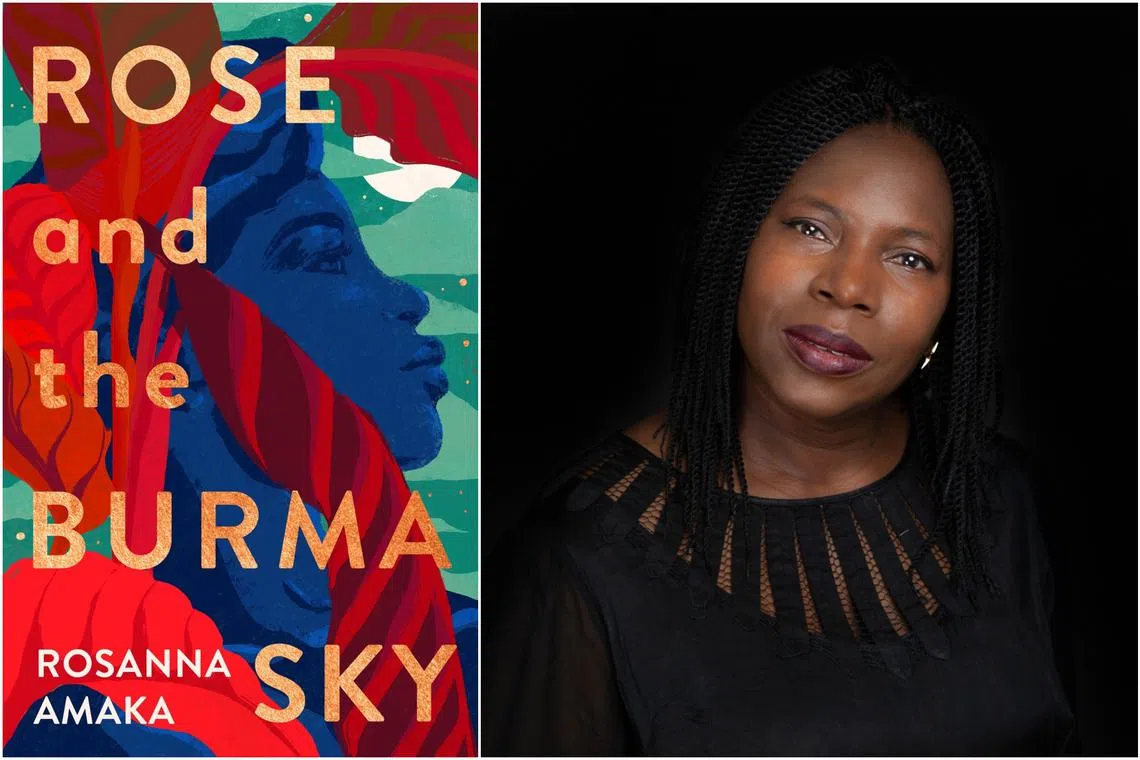Book review: Rose And The Burma Sky a haunting tribute to African soldiers conscripted for WWII
Sign up now: Get ST's newsletters delivered to your inbox

Rose And The Burma Sky By Rosanna Amaka.
PHOTOS: TIMES DISTRIBUTION,MARK GREY
Follow topic:
Rose And The Burma Sky By Rosanna Amaka
Fiction/Doubleday/Paperback/272 pages/$31.32/Amazon ( amzn.to/46Da6NN
4 stars
Coerced, exploited and given short shrift. This was the harrowing reality for many African soldiers who fought in some of the most vicious and protracted campaigns of World War II.
Treated as expendable, these soldiers still fought hard – not for their colonisers, but so that they might survive and honour their own culture.
Born to Nigerian and Caribbean parents in the United Kingdom, Rosanna Amaka has written a historical romance that bears haunting testimony of collective trauma in Nigeria wrought by war, colonialism and prejudice that has gone under the radar.
The novel, her sophomore effort, excels at showing how these social forces shape individual behaviour, perpetuating a cycle of trauma inflicted on the colonised by themselves and their colonisers.
Attesting to this is protagonist Obi, a proud Igbo tribesman, sent by the Allies to what is now Myanmar to combat Japanese forces.
Unmoored from home, Obi is a far cry from the boy who joined the army out of unrequited love for his childhood friend, Rose.
Rose chomps at the bit to explore the world beyond the confines of their village – a world Obi finds bewildering due to his poverty and belief in patriarchal ideas of gender roles.
Through army life, he aspires to be a man mature enough for Rose, shedding his simplistic views of the world along the way.
He is met with a cruel and unsurmountable irony that Amaka fleshes out vividly. Rose seeks solace from the chaos of her city life in his black-and-white beliefs, while he projects his ideals for a partner – of docility and home-making – onto her.
Both characters ultimately crumble beneath the weight of mutual expectation in what modern dating parlance would term toxic co-dependency.
With meticulous historical research, Amaka vividly portrays the diverse locales and eras these characters find themselves in.
The pacing is mostly excellent, as she is not afraid to let character interactions unfold and linger, yet stops well short of plodding.
She brings a wide cast of supporting characters to life, each with his or her own baggage.
However, the epilogue seems like a rushed afterthought, lacking in the luminous prose and mesmerising character dynamics that had come before.
Nonetheless, Rose And The Burma Sky invites the reader to ponder the social forces that shape people and the blurred lines between tradition and modernity.
Perhaps the most poignant example is how traditional notions of gender equality in Obi’s tribe were eroded by patriarchal beliefs introduced with colonialism, and imbibed by the men of the tribe over time.
Yet, this relatively recent development is held up as a tradition that Rose is shamed for chafing against –another one of the many cruel ironies the characters are put through.
If you like this, read: Burmese Days by George Orwell (Penguin Classics, 2001, $24.85, Books Kinokuniya), a semi-autobiography that scathingly chronicles the tail end of colonial rule in Myanmar.
This article contains affiliate links. If you buy through these links, we may earn a small commission.

